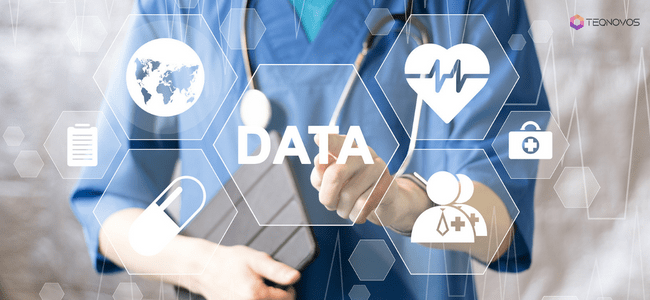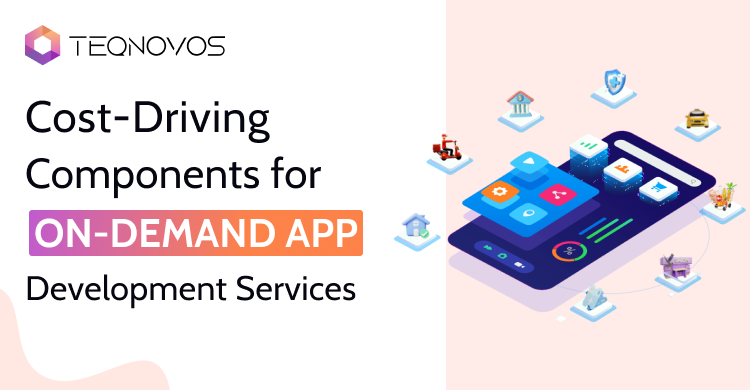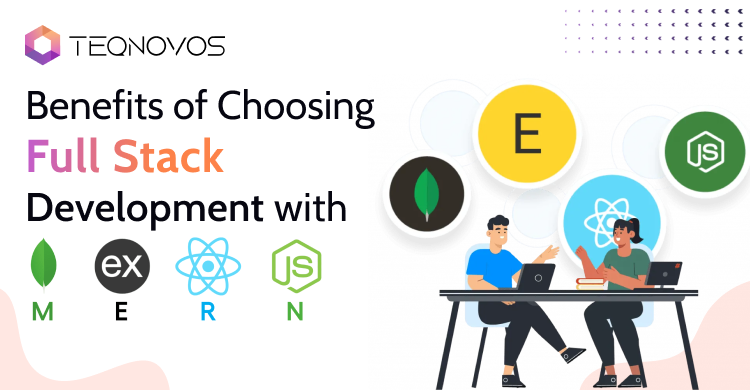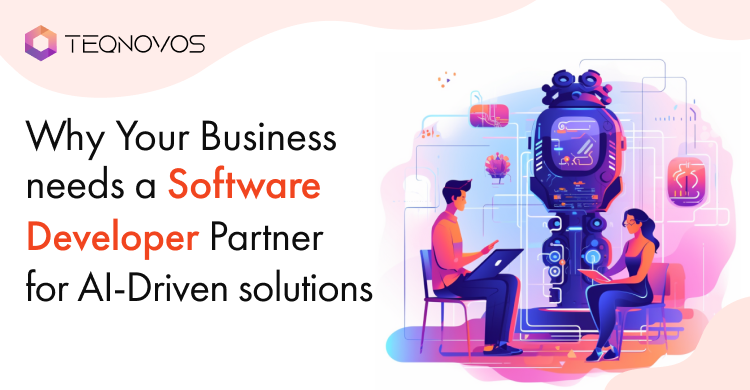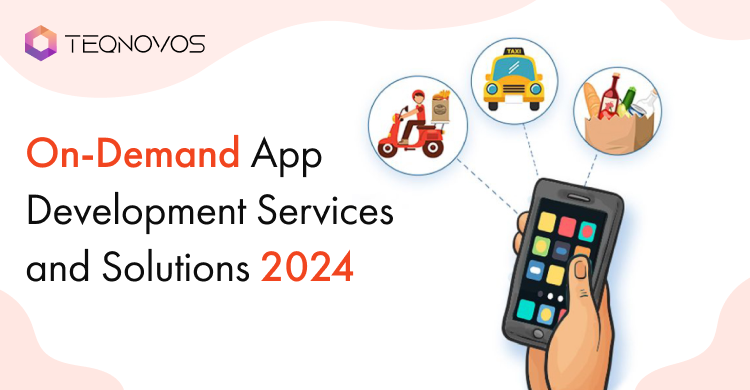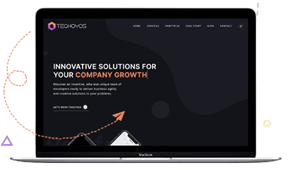How Can Blockchain be Used in Healthcare?
Many experts believe that it is a good idea to integrate blockchain technology into the healthcare industry due to the potential benefits that it has to offer.
In recent years, the popularity of blockchain across industries has skyrocketed. One such industry that is particularly interested in this technology is the healthcare industry.
As blockchain is a distributed ledger technology for storing data in a highly secure and decentralized manner, it has become an excellent choice for healthcare organizations to store medical data. Also, it’s quite convenient to access and share data stored in the blockchain.
There are many ways in which blockchain can benefit the healthcare industry, and we aim to make you familiar with them all. In this blog post, we are going to discuss the applications of blockchain in healthcare. Also, we’ll highlight the key advantages and challenges associated with the implementation of blockchain in healthcare.
So without further ado, let’s get started!
A Quick Overview of Blockchain
Blockchain technology represents a distributed, immutable ledger that stores information about the transactions occurring in a peer-to-peer network. Also, the ledger makes use of several blocks to store the data. Each block has a defined size and can store records of a fixed number of transactions. Whenever the space of a block gets exhausted, the blockchain network creates a new block that is linked to the previous block using a cryptographic hash function.
Blockchain acts as the base technology for cryptocurrencies, NFTs, dApps, Web 3.0, and DeFi. With blockchain, we can create decentralized systems; they are not controlled by any single entity.
Blockchain Technology in Healthcare
Just like any other industry, the entities working within the healthcare space are always on the lookout for technologies to improve the quality of their services. Blockchain is an innovative technology that can contribute to the betterment of the healthcare industry.
Today, healthcare providers focus on leveraging patient-centric approaches to improve the accessibility and quality of their healthcare services. Blockchain-based solutions allow the delivery of better services to patients.
Additionally, data exchange is quite challenging in the healthcare space. However, with the help of blockchain, it is possible to create highly efficient systems for storing and sharing medical data. Also, the technology ensures the authenticity of the data by safeguarding it against attacks and manipulation.
There are many ways in which blockchain technology can impact the healthcare industry and make it more efficient than ever. The next section talks about the use cases of blockchain in the healthcare industry.
Blockchain Use Cases in Healthcare
Here are some of the major applications of blockchain in healthcare:
-
Personal Health Record (PHR) Management
As health record management systems vary from hospital to hospital, it is fairly difficult to trace the medical history of a patient. Consequently, it acts as a barrier to offering effective patient care.
Also, the PHR systems used by different hospitals either offer poor interoperability or no interoperability at all. The absence of interoperable PHR systems is a major setback for both hospitals and patients. Even in certain cases, the lack of access to the medical histories of patients may lead to medical errors that can prove fatal.
Blockchain makes PHR management easy and more effective by storing all the patient data in a single place. Also, patients can have complete control over their medical data stored in a blockchain. Patients do not have to take permission from hospitals to get access to their health records stored on centralized PHR systems.
Additionally, hospitals can simply connect to a blockchain network that stores PHRs and with the permission of a patient, get access to their complete medical history. Also, as blockchain can help to trace the source of data, it becomes possible to trace the entity that made changes to the PHR of a patient.
-
Staff Credentials Storage and Verification
Blockchain is not only a good option for storing the health records of patients but the credentials of medical staff as well. By doing so, the hiring process becomes fairly easy for healthcare organizations as they can readily access and verify the credentials of a medical practitioner.
Storing the credentials on a distributed ledger is equally beneficial for health professionals as they can easily apply for a job and quickly share access to their credentials. They do not have to submit each of their credentials manually.
This will ultimately bring ease and transparency in the credentialing process for both health professionals and healthcare organizations.
-
Insurance Settlement
Another application of blockchain in healthcare is the processing of insurance claims and settlements. It is viable to upload medical insurance data on a blockchain and make use of smart contracts to automate the insurance claim and settlement process.
With smart contracts, we can define the conditions for filing an insurance claim and the requirements that the insurer needs to fulfill so that the settlement of the claim can be processed.
The plus point of managing insurance with smart contracts and blockchain is that it can automate the whole process of insurance settlement while eliminating the chances of insurance fraud.
-
Medical Supply Chain Management
Just like several other industries, the healthcare industry struggles when it comes to tracing the supply chain of products. In most cases, it is quite difficult for a healthcare organization to confirm the authenticity of the products that they want to buy. In general, it is essential to figure out the source of the product to check its legitimacy.
Usually, the supply chain of a product involves the participation of many companies, and most of them use their own tracking systems. This makes it almost impossible for the end users to track the product’s journey right from manufacturing to the final delivery.
Blockchain again comes here to the rescue by allowing all the parties involved in the supply chain of a product to upload the data in a single place. This allows end users to track a product at every stage of the supply chain.
The supply chain tracing with blockchain allows both healthcare organizations and patients to check the authenticity of drugs and medical devices. Moreover, blockchain can hold additional information about the products, such as raw materials, labor costs, carbon emissions, etc.
-
Genomics Management
As blockchain offers a secure environment for storing digital data, we can use it for storing genomic data. By doing so, we can ensure the safety of genomic data against manipulation. Moreover, it is easy to fetch genomic data from a blockchain from anywhere in the world.
Any organization or researcher can store the genomic data on a blockchain and share it with interested parties. Also, it is quite easy to monetize the genomic data and track all the parties that have access to the data. This way, it becomes quite easy to ensure complete ownership of the genomic data and prevent unauthorized use of such data.
-
Healthcare Data Protection
Each organization wants to ensure the safety of the healthcare data that it generates, be it patient data or administrative data. Data breaches have become quite common across the healthcare industry. Hackers launch different cyber attacks to steal healthcare information with the intention to sell it, blackmail healthcare organizations or hurt the reputation of an organization.
With blockchain-based systems in place, hackers find it extremely difficult to attack such systems and steal sensitive healthcare data. Also, the data stored in the blockchain is tamper-proof, and thus, hackers cannot manipulate or corrupt the data. Making use of blockchain solutions for storing healthcare data helps to ensure data integrity.
-
IoT-based Patient-Generated Health Data Management
Internet of things (IoT) has proved itself beneficial for the healthcare industry. IoT makes use of various devices and sensors to measure the vital signs of a patient and process the data to derive meaningful sights.
The interesting thing about IoT in healthcare is that it allows remote patient monitoring. Doctors can keep a check on the health of a patient even when sitting a hundred miles away. The use of IoT in healthcare shows promising results.
However, one major roadblock to the success of IoT in healthcare is the protection of data. As IoT makes use of the internet to share data, the data become prone to cyberattacks and network eavesdropping. Also, attackers can hack an IoT system by launching cyberattacks and disrupting the overall functioning of the system.
Integrating blockchain technology with IoT networks helps to ramp up the security of the latter. IoT devices can directly store data on the blockchain from where it becomes accessible only to concerned parties, like hospitals and healthcare providers.
Moreover, IoT devices can interact and share data directly without the need to get authentication from a central server. This can eventually boost the performance of the IoT system.
Key Benefits of Blockchain in Healthcare
Here are some of the most important benefits of blockchain in healthcare.
-
Improved Decision Making
We can process healthcare data to get meaningful insights that help in making better decisions. By storing data on a blockchain network, we can stay assured that the data is available in its original state. Data stored in a blockchain is tamper-proof, which means that it is impossible to make unauthorized changes to the data.
Having access to accurate data will ensure the extraction of error-free insights. This in turn will help both healthcare professionals and administrators to take better decisions to ensure complete patient satisfaction.
-
Better Patient Care
To deliver better patient care, it is crucial for health professionals to access the complete medical history of a patient. Blockchain allows the development of systems that can create, update, and manage EHRs or PHRs accurately. It becomes possible to use a unified platform to store and access patient data.
As a blockchain network is not under the control of any single entity, it becomes easy to access patient data without going through a lengthy process of getting access permissions. Any patient can simply share access to their medical data with a healthcare organization so that they can get the most appropriate treatment.
-
Ownership of Medical Data
Patients can have complete control of their medical records. They have the authority to share their medical records with health professionals and healthcare organizations. Also, with blockchain, it is possible to identify every individual or organization that has accessed the medical records of a patient.
Unlike today’s scenario, where hospitals have control of patient data, blockchain can put an end to this practice. At the same, patients will get complete ownership of their medical data as they are the ones to decide who can access their data.
-
Get Rewarded Directly for Enrolling in a Research Program
It’s quite common for individuals to enroll in various clinical research programs and monetize their data. However, the involvement of intermediaries often results in a lack of information about the usage of clinical data. Also, the monetary rewards shrink as intermediaries take commissions for facilitating various processes involved in the management and distribution of clinical data.
Blockchain tends to eliminate the need for intermediaries and allows individuals to keep a track of the usage of their data. Additionally, individuals can monetize their data without the need for a third-party service.
Challenges of Blockchain in Healthcare
The incorporation of blockchain technology in healthcare is not smooth sailing; there are some challenges that the healthcare industry needs to overcome. Let’s discuss them below.
-
Widespread Adoption
Blockchain is a relatively new technology that is not been fully explored and tested. This is a major reason why many healthcare organizations are reluctant to make investments in adopting blockchain. As a result, the widespread adoption of blockchain in healthcare is a major challenge right now. At present, the rate of adoption of blockchain in the healthcare industry is low. To reap the benefits of blockchain, the healthcare industry needs to adopt it on a large scale.
-
Lack of Regulations and Government Involvement
Another significant challenge that healthcare organizations face when it comes to incorporating blockchain is the absence of regulations. Most countries do not have regulatory bodies to standardize the implementation and use of blockchain in healthcare.
Also, the lack of government participation to safeguard the interests of users is what makes healthcare organizations more reluctant to use blockchain technology.
-
Complex Implementation
One more drawback is that blockchain comes with its complex and costly implementation. As blockchain is quite in contrast with the traditional technologies used in healthcare, the need to create an infrastructure to support blockchain solutions becomes imperative.
Moreover, the implementation of blockchain solutions is complex and the number of blockchain professionals is limited. All of this impact the development and implementation of blockchain solutions in healthcare.
Blockchain Development for Healthcare with Teqnovos
The development of blockchain solutions for the healthcare industry needs is a tough row to hoe. Therefore, it becomes crucial to consult professionals having the expertise to create custom blockchain solutions that can meet the varying needs of the healthcare organization.
Teqnovos is a leading custom blockchain development company that strives to deliver robust solutions. The company employs a team of highly skilled and professional blockchain developers who are capable of creating a wide range of blockchain solutions.
If you want to develop blockchain solutions that meet all the requirements of your healthcare organization, look no further, as Teqnovos is here to help. Our extensive knowledge of blockchain development allows us to develop blockchain platforms from scratch and solutions for existing blockchains, including Ethereum, Solidity, Tron, Solana, and Hyperledger.
To Wrap it Up All
Blockchain has the potential to make a significant impact in the healthcare industry. There are several real-world use cases of blockchain in healthcare that are gaining traction. As a result, many healthcare organizations today are eager to explore more about the role of blockchain in improving patient experience.
From storing personal health records to managing health data generated by IoT devices, the healthcare industry can exploit blockchain in many ways. With blockchain, healthcare organizations can ensure better patient care while patients enjoy complete ownership of their medical data.
Healthcare organizations that want to know how they can benefit from the blockchain should consult a popular blockchain development company. Such a company will identify and develop the best blockchain solutions that a healthcare organization can leverage to deliver better services.










